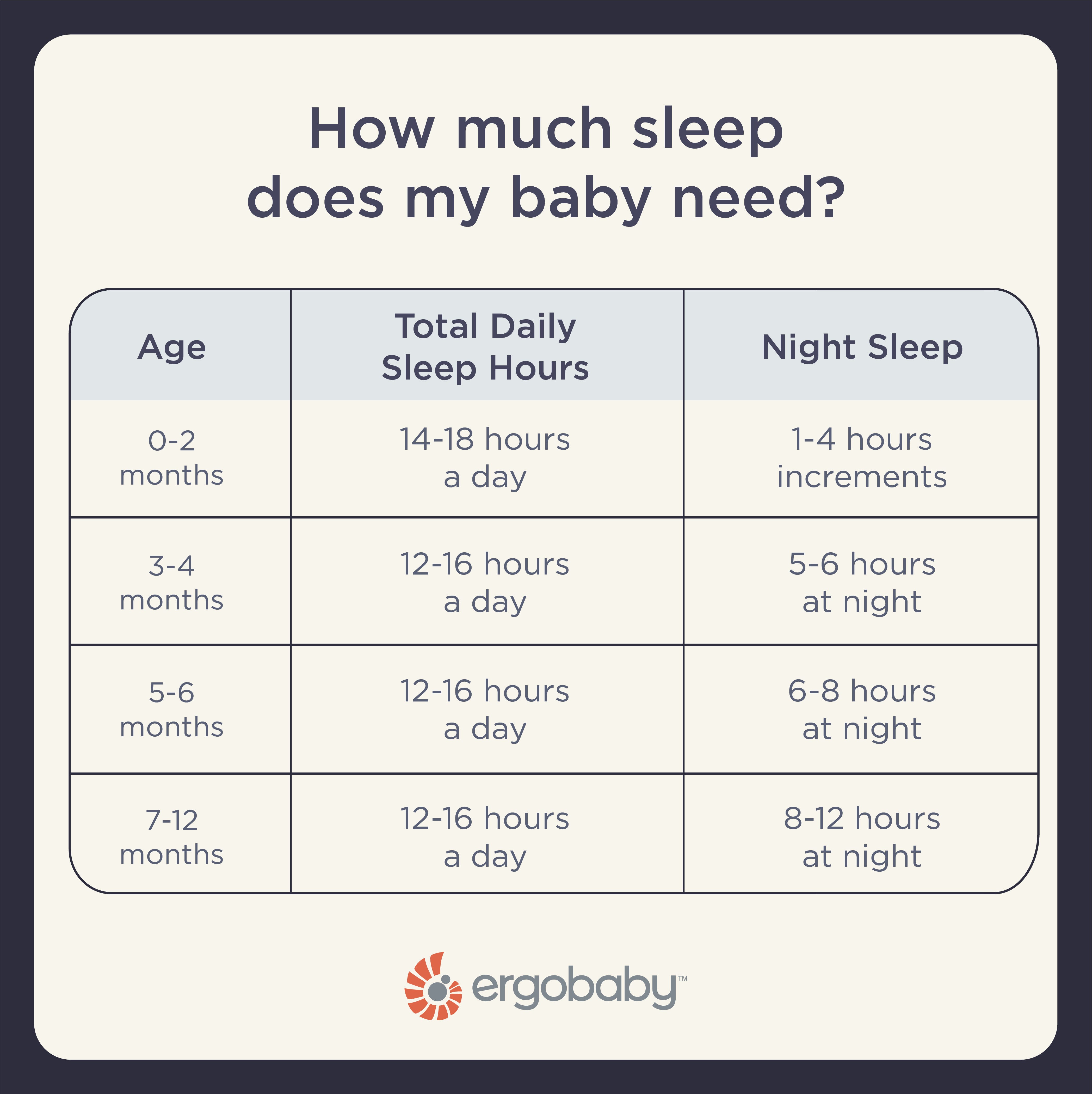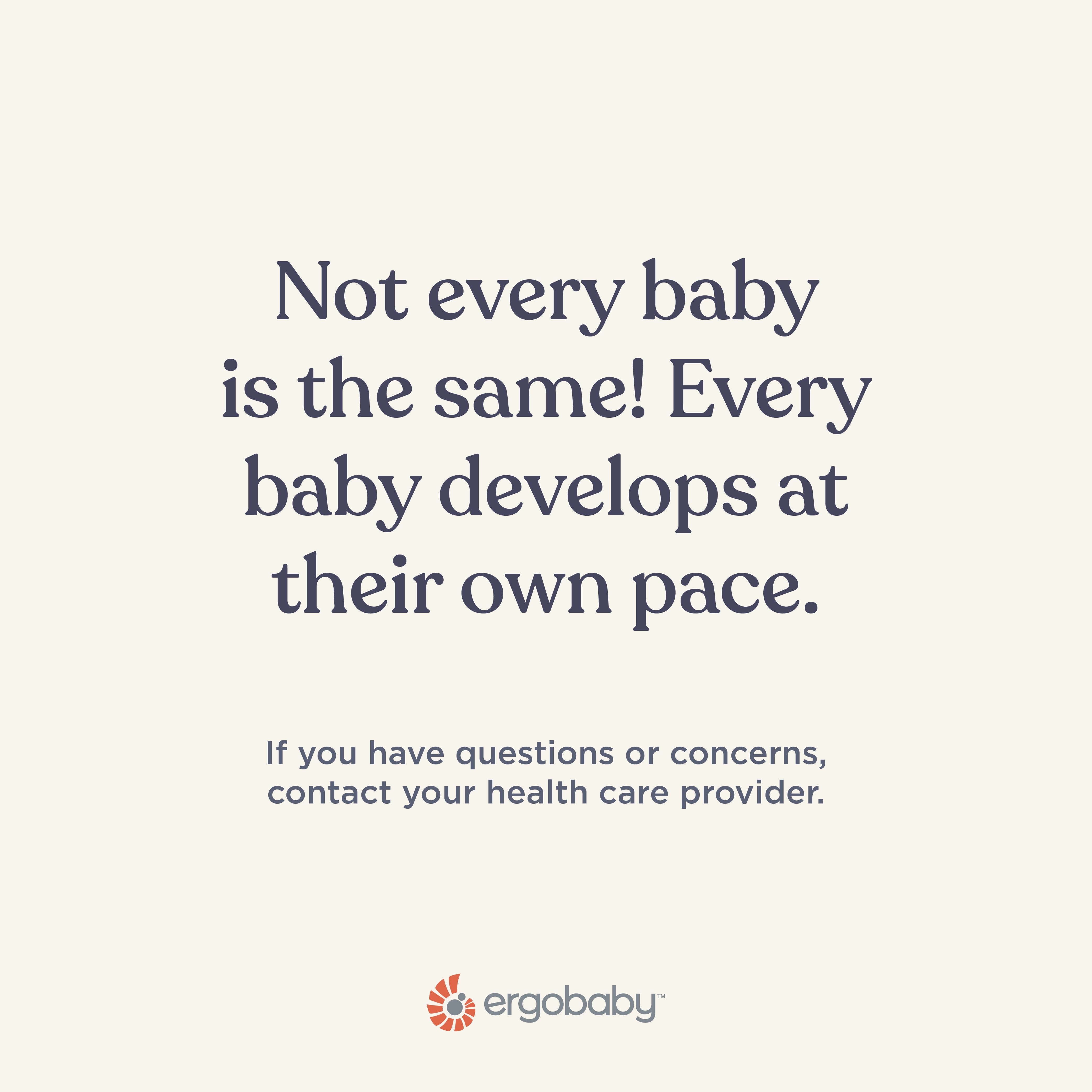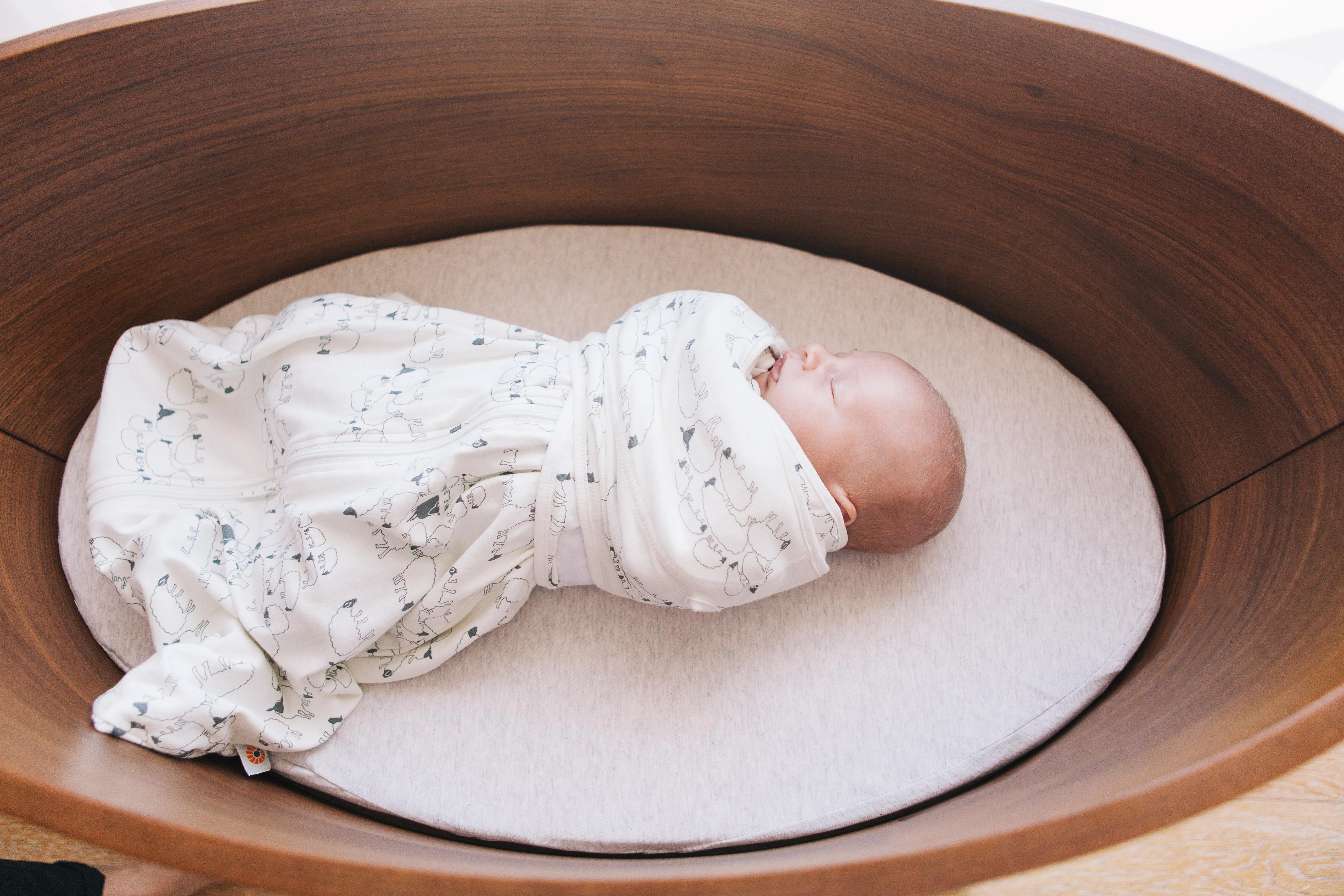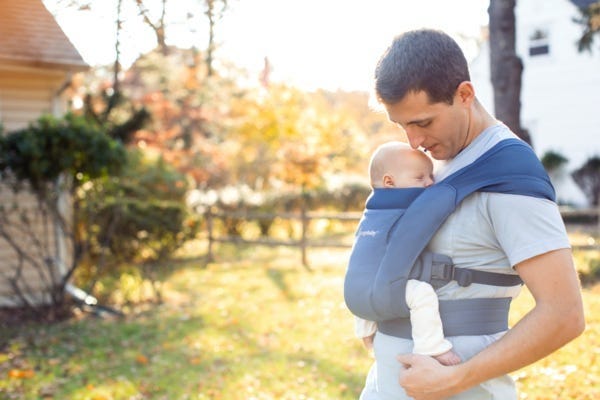
When Do Babies Sleep Through the Night?: A Baby Sleep Guide
Every new parent eagerly awaits the day their baby finally sleeps through the night. However, understanding when that day might come—and how to help it along—can feel like a mystery. Baby sleep patterns evolve as they grow, and what works at one stage may not work at another. In this guide, we’ll explore when babies sleep through the night, provide actionable tips for how to get a baby to sleep through the night, and discuss common reasons why your little one may have trouble achieving uninterrupted sleep.
When do babies sleep through the night?
The big question most parents ask is: When should babies sleep through the night? The answer varies because every baby is unique, but here’s a general timeline based on age:
Newborn Stage (0-2 months)
In the newborn phase, babies typically sleep between 14-17 hours a day. However, they only sleep in short stretches of 2-4 hours at a time, waking frequently to feed. At this stage, it’s unrealistic to expect long stretches of uninterrupted sleep because their tiny tummies need regular nourishment.
All About Baby Carriers for Nature Adventures
Choosing the Right Baby Carrier
When it comes to selecting the best baby carrier for summer adventures, there are several options to consider.
Types of Baby Carriers:
- Wraps: Perfect for newborns, providing a snug and secure fit.
- Slings: Ideal for quick and easy use, offering good ventilation.
- Soft Structured Carriers: Versatile and comfortable for both parent and baby, suitable for longer trips.
Discover which baby carrier is right for you!
3-4 Months
Around 3-4 months, babies may start to sleep for longer stretches, with some going up to 5-6 hours at night. This is when parents might begin to see the first signs of longer, more consistent nighttime sleep. However, sleep regression can occur as babies experience rapid brain development, disrupting their progress.
5-6 Months
By 5-6 months, many babies can sleep through the night for 6-8 hours without waking. This is typically when parents can begin to focus on establishing a consistent bedtime routine and setting healthy sleep habits.
7-12 Months
Between 7-12 months, most babies are capable of sleeping through the night for 8-12 hours. By this stage, many no longer need nighttime feedings, making it easier for parents to establish a steady sleep schedule.
What age do babies sleep through the night?
While some babies might start sleeping through the night by 4-6 months, others may take longer. It’s important to remember that every baby is different, and it’s perfectly normal for some to need nighttime feedings or comfort even after 6 months.
Factors to Consider:
- Baby’s Age and Weight: Ensure the carrier is appropriate for your baby’s size and weight. For example, Ergobaby’s Embrace Newborn Carrier is perfect for the fourth trimester where baby is small and you’re looking for an easy way to stay close. As they grow, you’ll want to upgrade to an all-position carrier that’s meant for growing babies.
- Parent’s Comfort and Ergonomics: Look for carriers with padded shoulder straps and lumbar support if you’re planning on longer outings.
- Ease of Use: Choose a carrier that is easy to put on and take off.
- Climate and Breathability: Opt for carriers made of breathable fabrics to keep you and your baby cool in hot weather.
Safety Tips:
- Proper Positioning: Ensure your baby is seated correctly, with their legs in an "M" position and their head should be close enough to kiss.
- Checking for Wear and Tear: Regularly inspect your carrier for any signs of damage.
- Ensuring Adequate Support: Make sure the carrier provides proper support for your baby’s head and neck.
How to Help Babies Sleep Through the Night
Helping your baby sleep through the night involves patience, consistency, and understanding your baby’s unique needs. Here are some tips:
1. Establish a Bedtime Routine
Creating a calming bedtime routine helps signal to your baby that it’s time to wind down. This routine can include activities like a warm bath, a soothing lullaby, reading a book, and dimming the lights.
2. Set the Stage for Sleep
Make sure the sleep environment is conducive to rest. A dark, quiet room with a comfortable crib and a sleep sack or swaddle can help your baby feel secure. Ergobaby offers safe sleep products for every stage to promote better rest.


Advantages of Using Strollers for Nature Adventures


3. Encourage Daytime Feeding
Ensure your baby is getting enough calories during the day so they’re less likely to wake up hungry at night. Offering full feeds during the day can help stretch nighttime sleep.
4. Create a Consistent Schedule
Babies thrive on routine. Keeping consistent nap and bedtime schedules helps regulate their internal clocks, making it easier for them to sleep longer at night.
What might be keeping your baby from sleeping through the night?
Even with the best routines, some babies may still have trouble sleeping through the night. Understanding potential issues can help parents find solutions:
1. Hunger
For younger babies, waking at night to feed is normal. As they grow, reducing nighttime feedings can help promote longer sleep stretches.
2. Sleep Regressions
Sleep regressions often occur during key developmental milestones (around 4, 8, and 12 months). These periods are temporary, so stay consistent with your routine and offer extra comfort as needed.
3. Teething Pain
Teething can disrupt sleep as babies experience discomfort. Offering a teething toy or gently massaging their gums may help ease their pain and allow them to sleep better.
4. Medical Reasons Baby Won’t Sleep at Night
Sometimes, sleep issues may be due to underlying medical conditions. Issues like reflux, allergies, or sleep apnea can affect your baby’s ability to rest. If your baby won’t sleep at night despite following a consistent routine, consult your pediatrician.
5. Separation Anxiety
As babies grow, they may experience separation anxiety, causing them to wake and cry for comfort. Offering reassurance and maintaining a consistent bedtime routine can help ease this phase.
Combining Baby Carriers and Strollers
For the ultimate flexibility, consider using both a baby carrier and a stroller on your outings.
Combining both options allows you to adapt to different situations. Use the carrier for more rugged trails and switch to the stroller for smoother paths or when your baby needs a nap.
Transition Tips
- Smooth Transitions: Plan stops where you can easily switch from carrier to stroller.
- Pack Light: Only bring essentials to make transitions easier.
Tips for a Successful Adventure
Planning Ahead
- Route Planning: Choose baby-friendly trails and parks. Check local mom groups or outdoor groups and get recommendations for the best outings for kids.
- Check Weather Conditions: Avoid extreme heat or unpredictable weather. Even with our most breathable carriers, when it’s hot, it’s hot. And having two bodies against each other in the heat will be naturally hot and sticky already.
- Packing Checklist: Include diapers, snacks, water, sunscreen, and a first-aid kit. These all-position carriers have storage pockets where you can fit some of the items easily!
- Stay Hydrated and Nourished: Pack healthy snacks to keep energy levels up and bring plenty of water for both you and baby.


Final Thoughts: Getting Baby to Sleep Through the Night
The journey to getting your baby to sleep through the night can feel long and challenging, but it’s important to remember that sleep patterns evolve. Be patient with yourself and your baby, and know that interrupted sleep in the early months is completely normal.
By following healthy sleep practices, being consistent, and understanding the developmental milestones of your little one, you can help set the stage for longer, more restful nights. And when those peaceful nights finally arrive, you’ll be glad you stayed the course.
For more resources and products to support your baby’s sleep journey, check out baby sleep safety with swaddlers and sleep sacks.
Ready to improve your baby’s sleep? Explore 10 game-changing baby sleep products to help children sleep better.
And here are some more tips on helping your baby fall asleep.



























